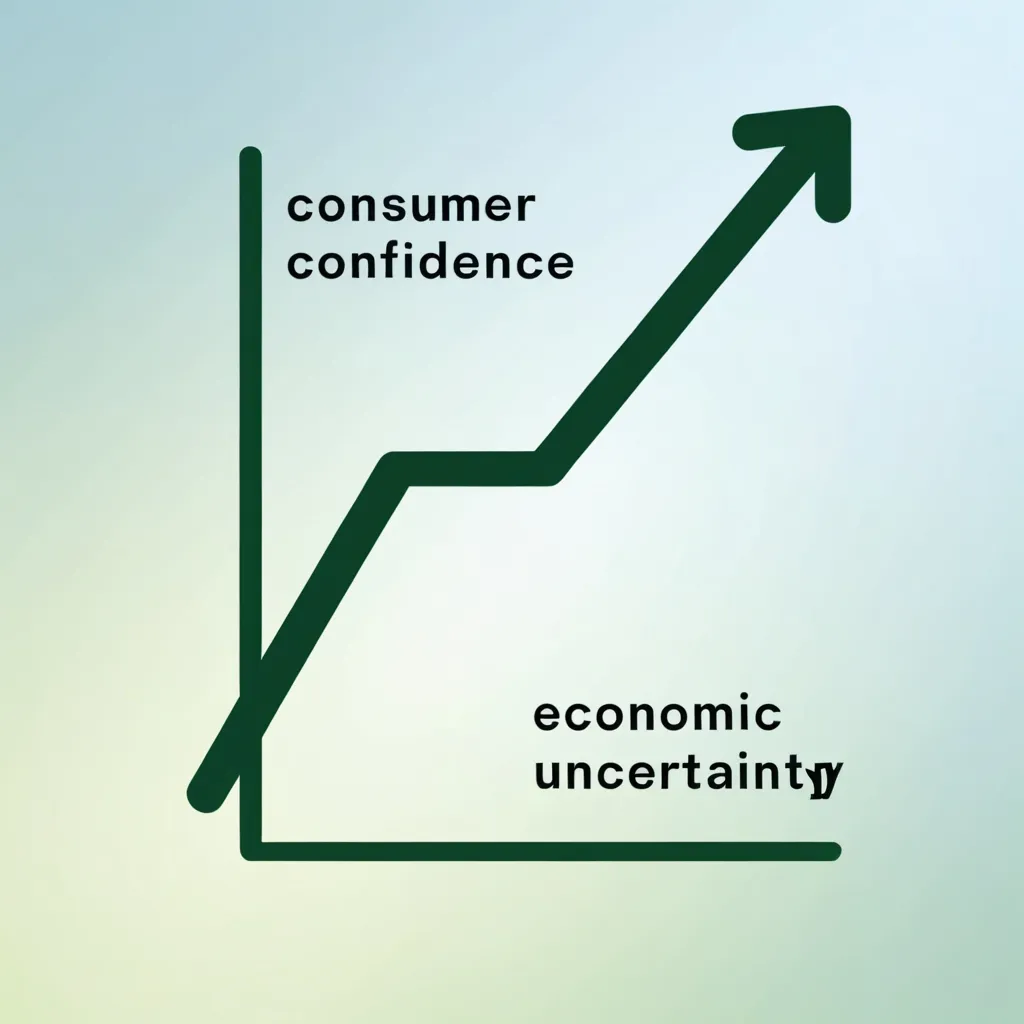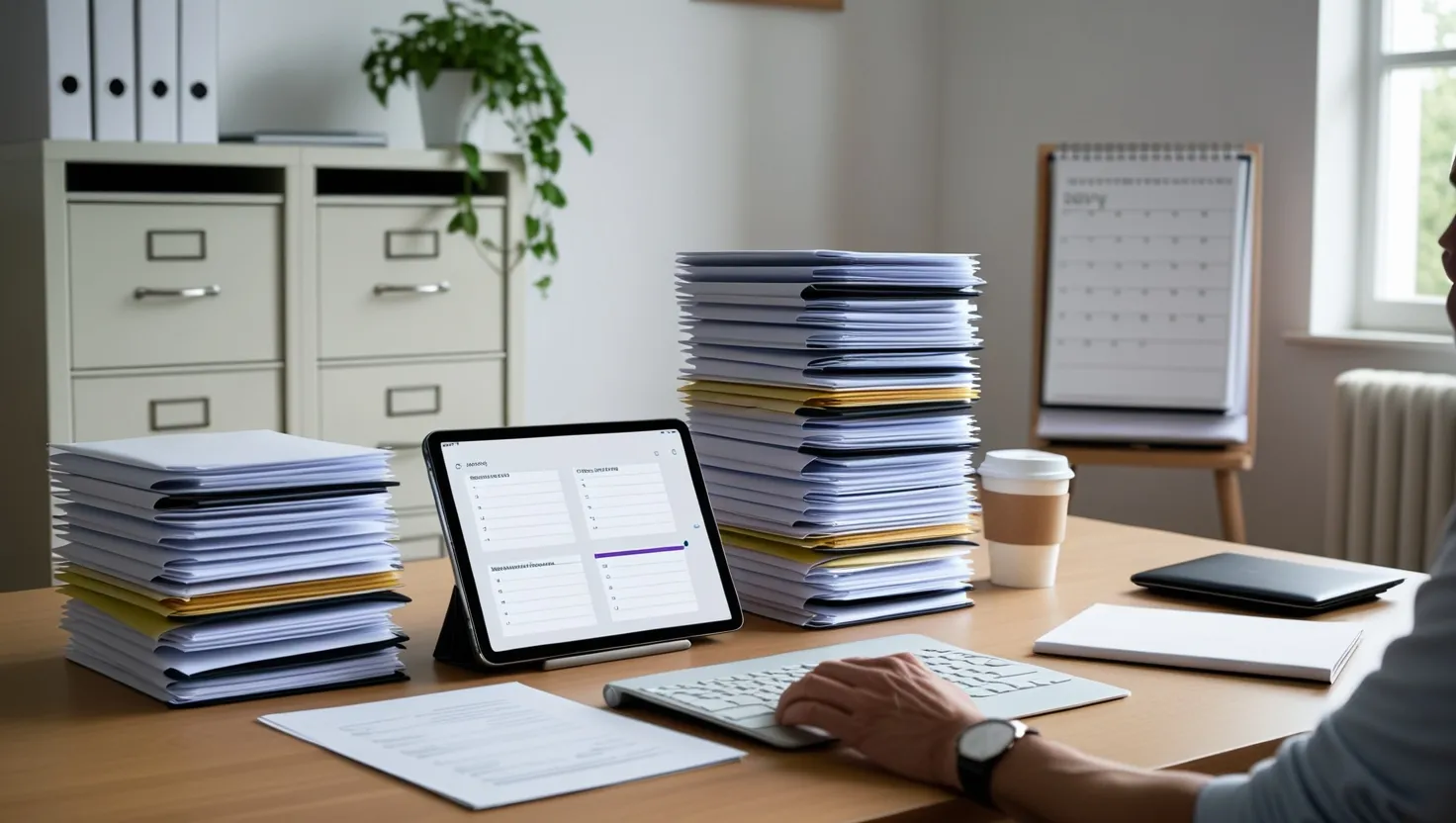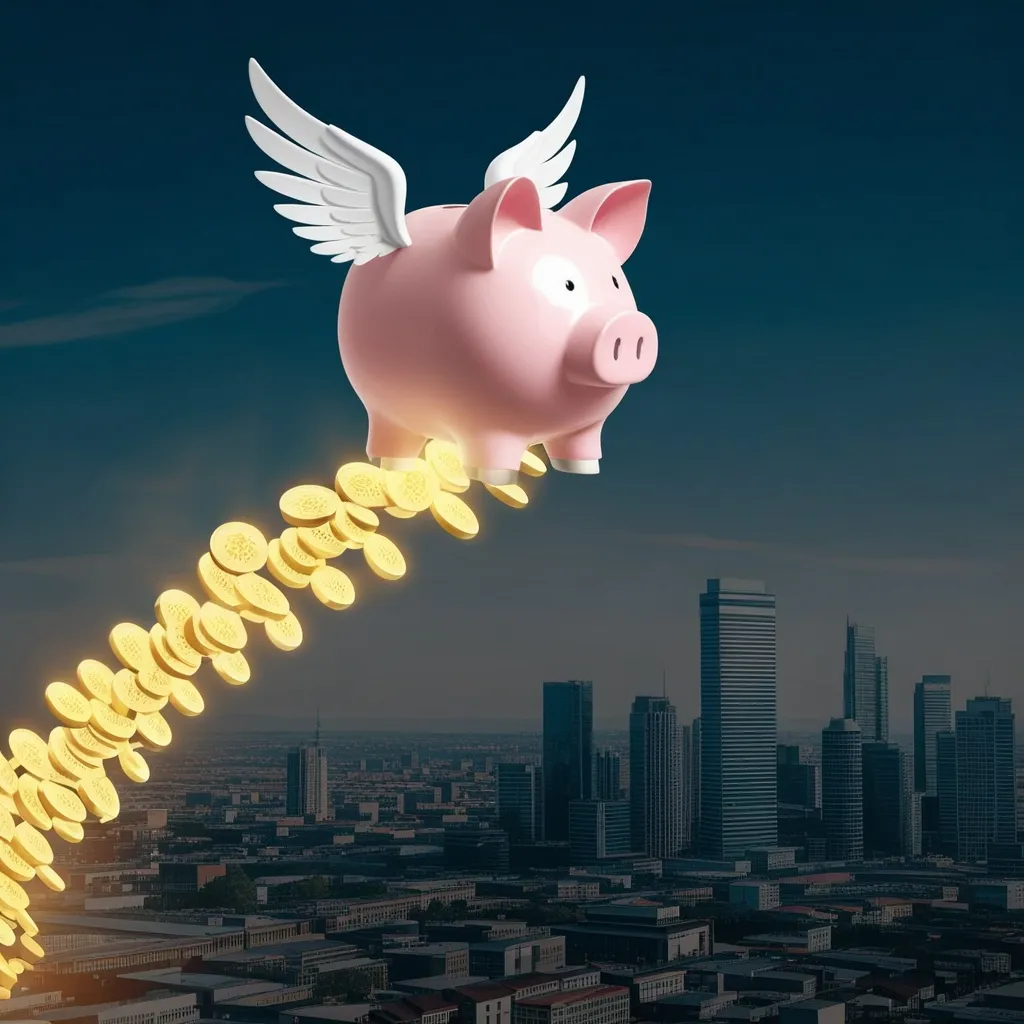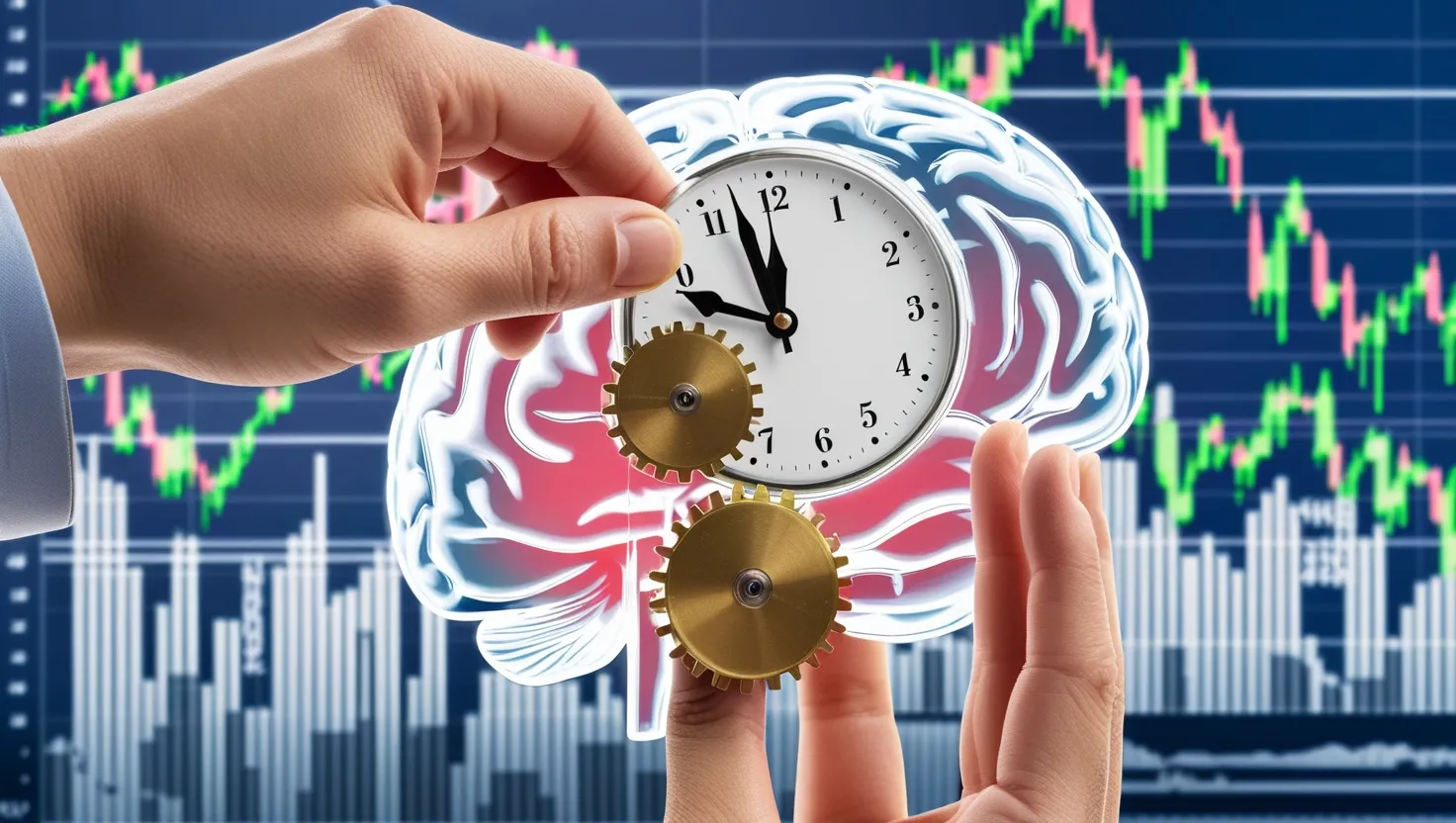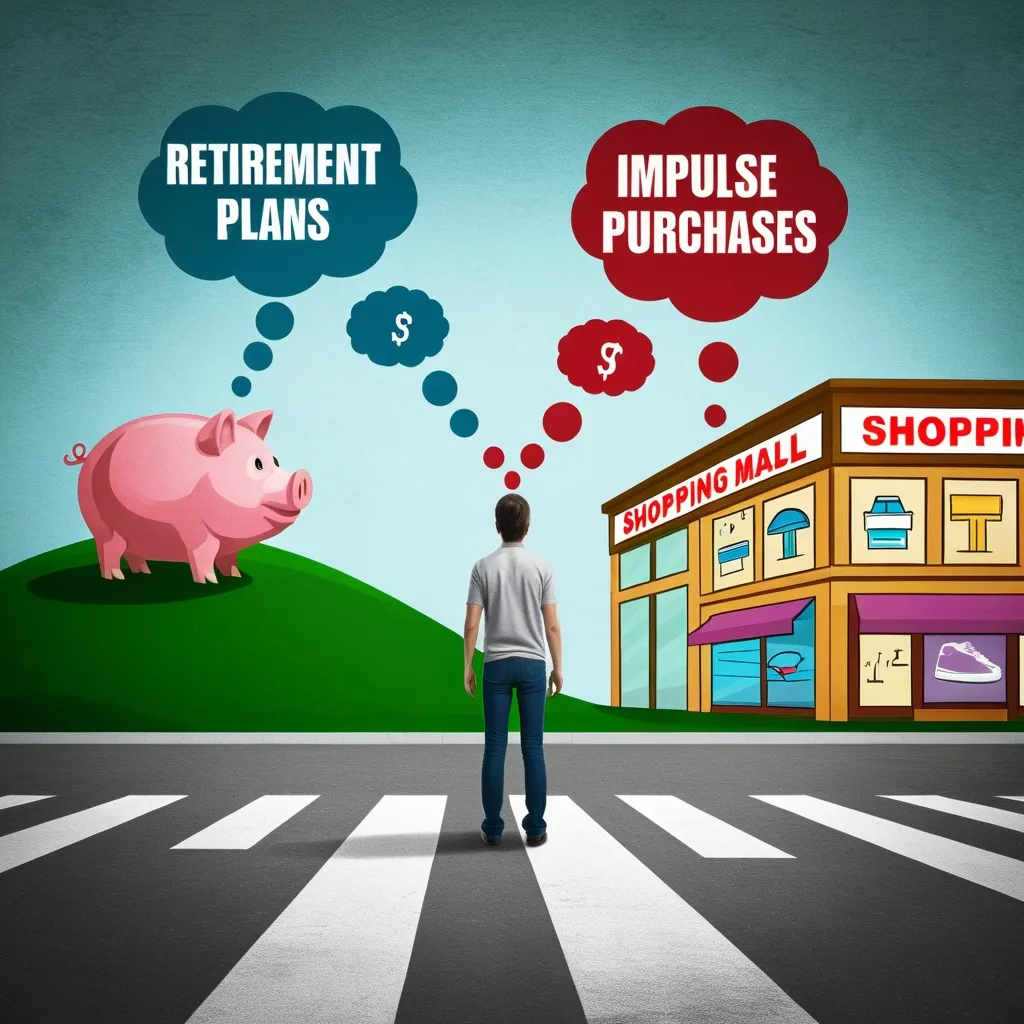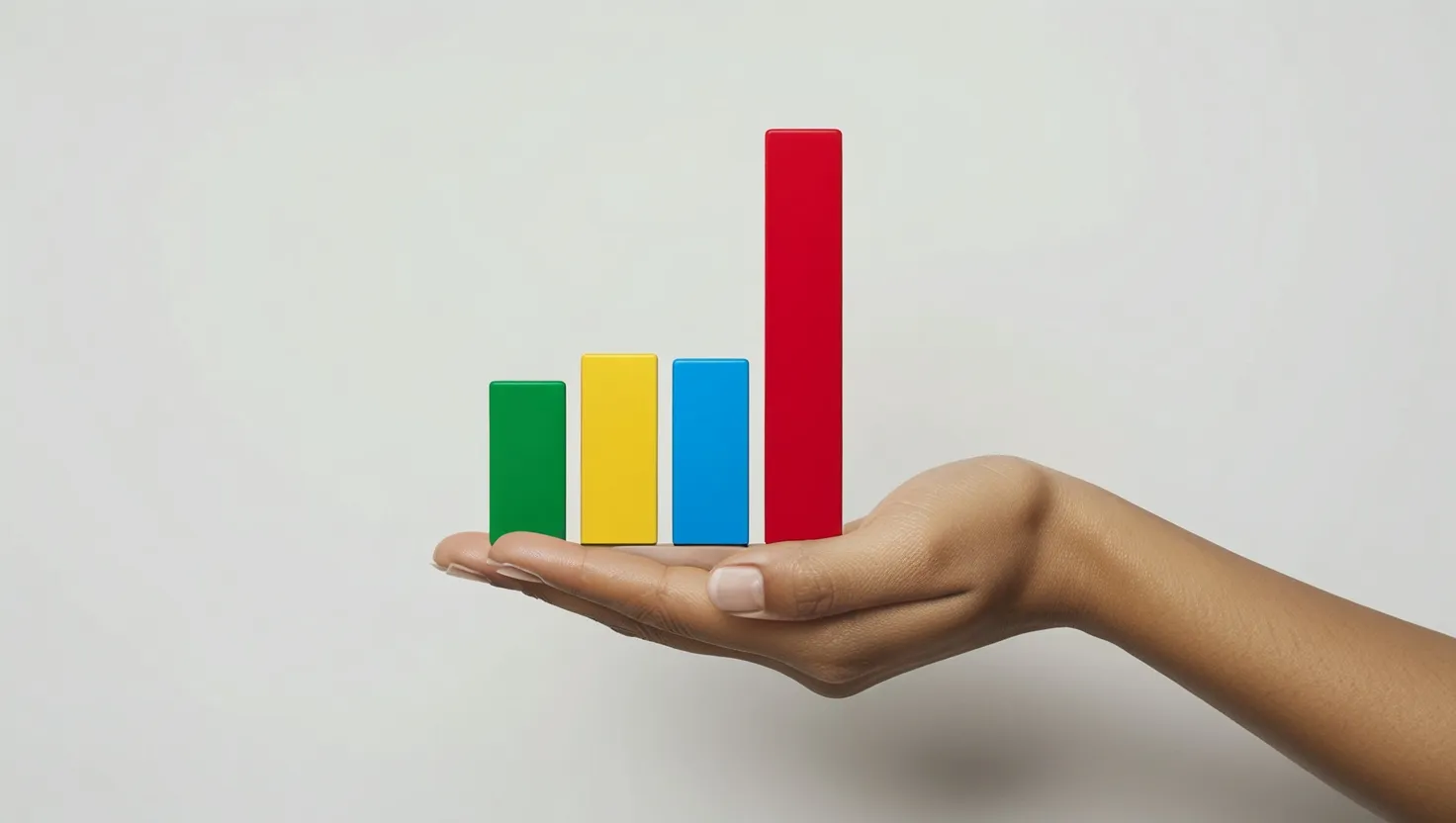Consumer confidence is a fascinating barometer of economic health. It’s not just some dry statistic - it’s a peek into how regular folks like you and me feel about our financial futures. And let me tell you, those feelings can move mountains when it comes to the economy.
Think about it - when we’re feeling good about our jobs and wallets, we’re more likely to splurge on that new TV or plan that family vacation. It’s like a domino effect. Our spending gives businesses a boost, which in turn can lead to more jobs and higher wages. Before you know it, the whole economy is humming along.
But it’s not always sunshine and roses. When times get tough, like during the recent pandemic, our confidence can take a nosedive. We start pinching pennies, and suddenly businesses are feeling the squeeze. It’s a vicious cycle that can be hard to break.
What’s really interesting is how consumer confidence can vary across different groups. Young folks might be feeling optimistic while older generations are more cautious. Or maybe high-earners are ready to spend while those on tighter budgets are holding back. These differences can paint a complex picture of where the economy might be heading.
Inflation and interest rates play a big role too. When prices start creeping up or borrowing gets more expensive, it can put a real damper on our spending mood. On the flip side, if we think prices are going to stay stable and interest rates low, we might be more willing to make those big purchases.
Here’s a fun fact - consumer confidence can even help predict recessions. When confidence dips below a certain level, it’s often a sign that tough times are on the horizon. But don’t panic just yet - even when things look a bit gloomy, it doesn’t always mean a recession is coming. Sometimes it’s just a temporary blip.
Let’s get personal for a moment. Imagine you’ve been eyeing that shiny new car in the dealership window. If consumer confidence is high, you might feel more secure about your job and future income. Suddenly, taking the plunge on that car doesn’t seem so scary. Now multiply that decision by millions of people, and you can see how it could give the auto industry a serious boost.
Or picture yourself as a small business owner. When consumer confidence is up, you might feel more comfortable investing in new equipment or hiring extra staff. It’s like a vote of confidence in the future of your business.
Consumer confidence isn’t just about spending, though. It’s also about saving and investing. When we’re feeling good about the economy, we might be more willing to put money into stocks or start planning for that dream home. These decisions can have a big impact on financial markets and the housing sector.
It’s worth noting that consumer confidence isn’t always rational. Sometimes our perceptions can be influenced by media coverage or political events that don’t necessarily reflect the true state of the economy. That’s why economists look at a range of indicators, not just consumer confidence, to get a full picture of economic health.
One thing’s for sure - consumer confidence is a powerful force. It can turn economic predictions on their head and surprise even the most seasoned experts. After all, economies are made up of people, and people can be pretty unpredictable sometimes.
So next time you hear about consumer confidence in the news, pay attention. It’s not just some abstract concept - it’s a reflection of how millions of people feel about their financial future. And those feelings can shape the direction of entire economies.
Think about your own confidence in the economy right now. Are you feeling optimistic about your job prospects? Worried about rising prices? Your feelings, combined with those of your neighbors, friends, and fellow citizens, are all part of this bigger economic picture.
Consumer confidence also has a way of feeding on itself. When we hear that others are feeling good about the economy, it can boost our own confidence. It’s like a financial version of contagious laughter - positivity spreads, and before you know it, everyone’s feeling a bit more optimistic.
But it’s not all about the warm fuzzies. Consumer confidence can also be a double-edged sword. If we get too confident, it could lead to overspending or taking on too much debt. That’s why economists and policymakers keep a close eye on these trends, trying to strike a balance between encouraging growth and preventing economic bubbles.
It’s also interesting to think about how technology and social media are changing the way we perceive the economy. With instant access to financial news and market updates, our confidence levels can change in the blink of an eye. A viral tweet or a breaking news alert can send ripples through consumer sentiment faster than ever before.
At the end of the day, consumer confidence is about more than just numbers on a chart. It’s about how we feel when we wake up in the morning and head to work. It’s about whether we feel secure enough to plan for the future or if we’re just trying to make it through the day. These very human experiences and emotions are at the heart of economic movements.
So the next time you’re mulling over a big purchase or thinking about your financial future, remember that you’re not just making a personal decision. You’re part of a bigger economic story, one where millions of individual choices add up to major economic trends. Your confidence - or lack thereof - is a tiny but important piece of the economic puzzle.
In conclusion, consumer confidence is a powerful force in shaping economic outcomes. It’s a complex interplay of psychology, economics, and social trends. By understanding and monitoring consumer confidence, we can gain valuable insights into where the economy might be heading. Whether you’re a policymaker, a business owner, or just someone trying to make smart financial decisions, paying attention to consumer confidence can help you navigate the ever-changing economic landscape.
So keep your finger on the pulse of consumer confidence. It might just give you the edge you need in understanding and predicting economic trends. After all, in the world of economics, sometimes how we feel is just as important as cold, hard facts.
